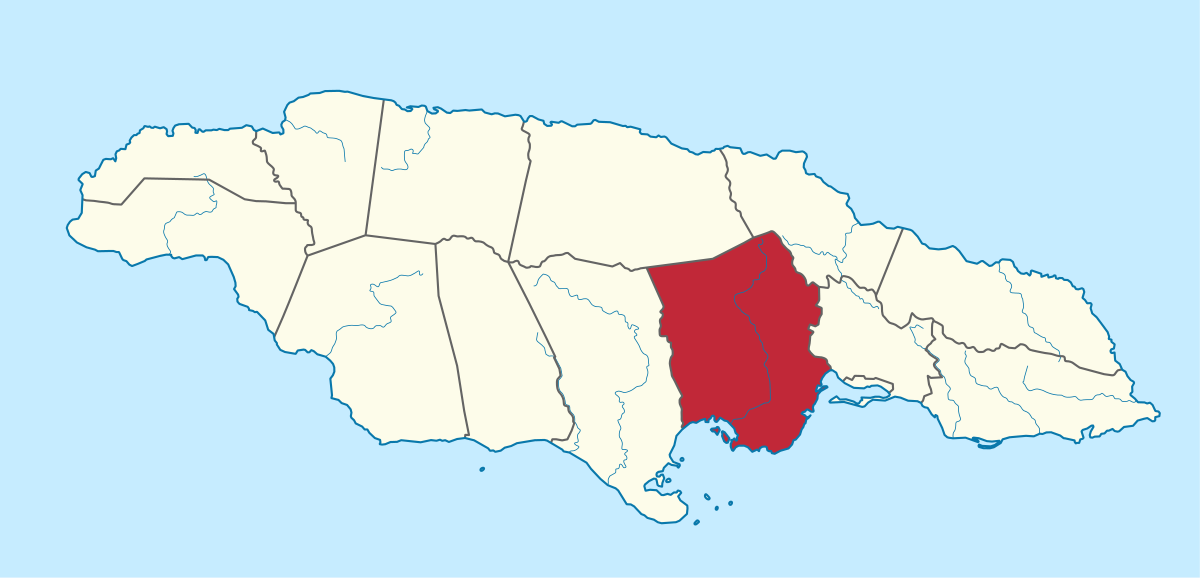The Parish of St Catherine

The parish is bordered by St Andrew in the east, Clarendon in the west, and St Mary and St Ann in the north. It has an area of 1,192 sq km, making it one of Jamaica's largest parishes. In 1867 when the number of parishes in Jamaica was reduced from twenty-two (22) to fourteen (14), the boundaries of St. Catherine were expanded to incorporate the former parishes of St. Dorothy, St. John and St. Thomas-in-the-Vale. There is only one river in St. Catherine, the Rio Cobre. The central and northern sections are very mountainous; a plain of approximately 57,000 acres (230 km²) occupies the southern part of the Rio Cobre basin.
The capital town, Spanish Town once the capital city of Jamaica in the parish of St. Catherine has the finest collection of historical buildings, and the country's archives. As a site of historical importance, its history was shaped by its experiences within two significant colonial periods. These periods are the Spanish from 1534 -1655 and the English from 1655 -1782.
Industrial plants in the parish are some of the biggest employers in the island. The largest salt producing plant in the Caribbean is located in Spanish Town, and Jamaica Milk Products, an affiliate of the Nestle organization, the largest power plant in the island and several factories are located in Old Harbour. Twickenham Park, is another industrial estate with mainly light industries including cigarettes, carpets, batteries, plastic items, medical and pharmaceutical products. Agriculture is also part of the parish’s economic base. Bay. Jamaica’s largest fishing beach – Old Harbour Bay - is found in St. Catherine. It is also noteworthy that Caymanas Race Track, Jamaica's most famous race track, is in St Catherine.
St Catherine is next only to Kingston as an industrial centre and has accommodated much of the population overspill from the Kingston Metropolitan Area. Of all the parishes (with the exception of Kingston and St. Andrew) St. Catherine shows the most potential for urban development. With its good water resources, virtually flat landscape, and closeness to the capital, in the next few years it could possibly be one of the world's major urban areas.
